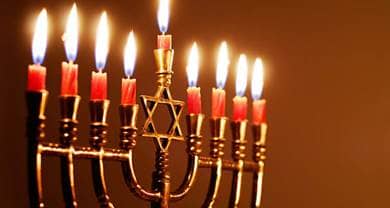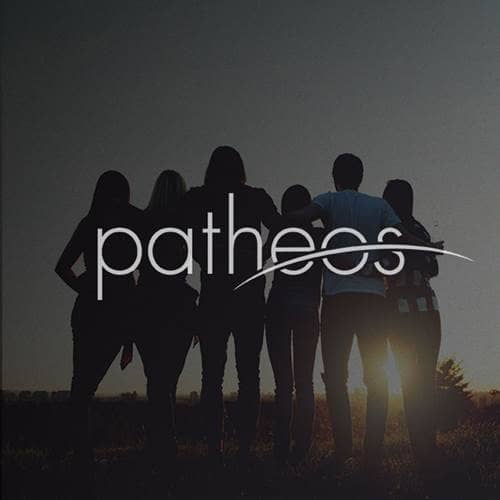- Trending:
- Pope Leo Xiv
- |
- Israel
- |
- Trump
- |
- Social Justice
- |
- Peace
- |
- Love

RELIGION LIBRARY
Judaism
Worship and Devotion in Daily Life
Immediately upon waking, Jews wash their hands ceremonially and recite the prayer Modeh Ani, thanking God for "restoring the soul," followed by the credo of the Shema Yisrael ("Hear O Israel the Lord our God, the Lord is One."). Again, before retiring to sleep, they recite a blessing known as Ha-Mapil, imploring God to grant peaceful sleep, which is also followed by the invocation of the Shema.
 Aside from blessings, which permeate the three mandated daily prayers services, Jews are obligated by rabbinical law regularly to recite benedictions for every imaginable occasion and personal experience. These benedictions, known as Berakhot, all begin with the identical, familiar refrain: "Baruch ata Adonai Elohenu Melekh ha-Olam (Blessed are you, Lord, our God, King of the Universe), and conclude either by acknowledging gratitude to God for divine involvement in every aspect of the believing Jews' lives, or for the opportunity to fulfill God's commandments. The most common of these berakhot are blessings of thanksgiving. Numbering in the hundreds, these blessings range from thanking God for granting sight, recited at daybreak, to thanking God for maintaining the proper functioning of the body's organs, recited upon the completion of a urinary or bowel movement.
Aside from blessings, which permeate the three mandated daily prayers services, Jews are obligated by rabbinical law regularly to recite benedictions for every imaginable occasion and personal experience. These benedictions, known as Berakhot, all begin with the identical, familiar refrain: "Baruch ata Adonai Elohenu Melekh ha-Olam (Blessed are you, Lord, our God, King of the Universe), and conclude either by acknowledging gratitude to God for divine involvement in every aspect of the believing Jews' lives, or for the opportunity to fulfill God's commandments. The most common of these berakhot are blessings of thanksgiving. Numbering in the hundreds, these blessings range from thanking God for granting sight, recited at daybreak, to thanking God for maintaining the proper functioning of the body's organs, recited upon the completion of a urinary or bowel movement.
There are also blessings to be recited upon witnessing beautiful natural events, such as a rainbow or encountering people of great power or wisdom, such as royalty and scholars. It is, moreover, a powerful sign of the strong Jewish faith in unfailing Divine Providence that the rabbis legislated that God is to be thanked not merely for the blessings and bounty of this world, but also for its hardships and tragedies. Thus, when one hears of the death of a friend or loved one, God is blessed as "the judge who deals truthfully"; upon hearing news of any great tragedy, God is blessed for "dealing thus with His world"; and upon seeing a severely deformed person, a benediction praises a Lord "who varies his Creatures." The Sages of the Talmud suggest that any Jew who has not managed to recite at least one hundred benedictions each day, has fallen short of his religion's expectations. Given their pervasiveness not only in all aspects of daily experience, and the fact that there are well over one hundred benedictions in the three statutory daily prayers alone, this is hardly an unreasonable expectation.
Aside from the three daily, rabbinically ordained prayer services, there is one devotion that is of biblical origin: the mandatory recitation, twice daily, of the credo of Israel, the aforementioned Shema Yisrael, followed by three biblical passages, the most important of which explicitly commands the Children of Israel to "recite these words, when you rise up and before you lay down to sleep." The three passages that follow the Shema Yisrael refer to biblical injunctions for wearing the liturgical garment known as the tallit, or fringed prayer shawl, and the tefillin, the phylacteries, which are boxes that contain parchments on which the passages of the Shema are inscribed by a scribe, and which are bound by leather straps to the forearm and head and worn during morning prayers.
 The invocation of the Shema is also ideally intended to be the last words that cross a Jew's lips before death. For many centuries, the Shema has been the cri-de-coeur of Jewish martyrs who willfully gave their lives rather than be coerced into accepting idolatry.
The invocation of the Shema is also ideally intended to be the last words that cross a Jew's lips before death. For many centuries, the Shema has been the cri-de-coeur of Jewish martyrs who willfully gave their lives rather than be coerced into accepting idolatry.
The most frequently recited of the many Hebrew benedictions of thanksgiving are associated with the consumption of food and drink, the most familiar of which are those thanking God before a meal for providing bread and wine and the Grace after Meals that is recited at the conclusion of each meal.
This very rich regimen of blessings altogether constitutes a constant affirmation of God's presence in every aspect of human life, from the holiest to the most mundane, and promotes a perennial consciousness of Divine Providence and grace at every moment of human life, from the joyous to the tragic.
Study Questions:
1. What blessings are associated with the start and the end of a Jew's day?
2. What are Berakhot? How are they used?
3. How will blessing God in times of despair strengthen one's devotion within daily life?










